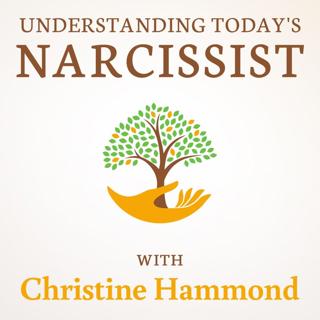
How a Narcissist Treats a COVID-19 Spouse
Kathy woke-up startled to hear her phone ring so at 5 am, with COVID-19 and a stay-at-home order in place, she was immediately worried. On the line calling her was her narcissistic dad, which he hadn’t done since she left home, so she was immediately on high alert. Read more... Advertising Inquiries: https://redcircle.com/brands Privacy & Opt-Out: https://redcircle.com/privacy
19 Feb 202112min

17 Deceptive Excuses for Abusive Behavior
Having grown up in an abusive family and now in a relationship with an abusive wife, Bradon believed the excuses constantly dished out to him by his abusive mother and wife. Beaten down, confused, hazy, and exhausted, he sought out help from a therapist. At first, he could not comprehend that he was the victim of abuse. He believed the lies that he was to blame. He thought abuse was only physical. But then Brandon learned it could also be verbal, emotional, mental, sexual, spiritual, and financial. Read more Advertising Inquiries: https://redcircle.com/brands Privacy & Opt-Out: https://redcircle.com/privacy
19 Nov 202013min

Lies Abusers Tell Their Victims
Ever wondered what abuse sounds like? What do abusers say to their victims to get them to acquiesce? Some of the statements listed below might even sound acceptable in certain environments, but they are not. Abusive behavior is pervasive and without awareness, it will continue. Read more Advertising Inquiries: https://redcircle.com/brands Privacy & Opt-Out: https://redcircle.com/privacy
5 Nov 202011min

10 Traits That May Indicate a Personality Disorder
As a general rule, people with personality disorders can be difficult to get along or maintain a healthy relationship with. They can be argumentative, stubborn, and frustrating if there is a lack of understanding about what a PD really means or how it manifests itself in an individual. A person with a PD has an inaccurate perception of reality which is pervasive in every environment and is not diagnosed until 18 years old. However, there always is a previous history of five years giving indications that a person has a PD before their formal diagnosis that can still help those around them identify the issue. Read more... Advertising Inquiries: https://redcircle.com/brands Privacy & Opt-Out: https://redcircle.com/privacy
2 Juli 202010min

What is a personality disorder?
Eventually, as is the case in everyone’s life, whether it be a family member, co-worker, neighbor, or friend, you will come across a person with a personality disorder (PD). Although it can usually be hard to discern if a person has a PD at the beginning of the relationship, its presence will soon come to light. Having an accurate understanding of both what a personality disorder is and where it may be coming from is essential to keep the frustration of navigating them to a minimum.Read more Advertising Inquiries: https://redcircle.com/brands Privacy & Opt-Out: https://redcircle.com/privacy
16 Juni 202013min

How to Survive When Quarantined with a Narcissist
After being married to a narcissistic wife for over 10 years and quarantined at home with her for the last several weeks, Ben had enough. His whole body started to reject his spouse’s self-centeredness by plaguing him with intense pain and repeated anxiety attacks that he could no longer ignore. He wanted to go to the doctor but his symptoms didn’t constitute an office visit. Instead via Telehealth, his doctor concluded that the pain and anxiety were psychosomatic. This, of course, infuriated him even more. Read more... Advertising Inquiries: https://redcircle.com/brands Privacy & Opt-Out: https://redcircle.com/privacy
21 Maj 202010min

How a Narcissist Treats a COVID-19 Spouse
Kathy woke-up startled to hear her phone ring so at 5 am, with COVID-19 and a stay-at-home order in place, she was immediately worried. On the line calling her was her narcissistic dad, which he hadn’t done since she left home, so she was immediately on high alert. He skipped any niceties and immediately started with what a terrible daughter she was. He explained that her mother was sick with COVID-19 and it was all her fault. He gave no details about her mom’s illness and when Kathy tried to inquire, he abruptly hung up the phone. She tried calling him back but he refused to answer. Kathy went into panic mode. Read more... Advertising Inquiries: https://redcircle.com/brands Privacy & Opt-Out: https://redcircle.com/privacy
7 Maj 202012min

6 Ways a ‘Silent Treatment’ Is Abusive
Matt knew he messed up but he wasn’t sure how. His wife’s complete silence towards him over the last few days was a signal that he made some sort of mistake. The problem was, according to his wife, Matt made daily errors in judgment, so he was completely in the dark. Did he drink too… (more…) Advertising Inquiries: https://redcircle.com/brands Privacy & Opt-Out: https://redcircle.com/privacy
16 Apr 202011min





















